Gambling Therapy
Gambling Therapy
Services
Tired of having your life and finances feel unmanageable? Ready to feel more in charge of your life and behaviour? We are here to help you get there!
Gambling therapy services are available in person, by phone or video for individuals in person in Calgary and Airdrie or virtually throughout Alberta, Yukon and New Brunswick.
Gambling therapy services are appropriate for anyone who is questioning their current relationship with gambling, those who are struggling with gambling behaviour, as well as for loved ones who are being impacted. Gambling therapy focuses on the whole person, not just the behaviour itself. Recommendations are targeted to shift or stop the behaviour (depending on your goals) as well as improve overall quality of life, including with self and relationships.

What is Problem Gambling?
“Problems with gambling is a treatable, chronic medical disease involving complex interactions among brain circuits, genetics, the environment, and an individual’s life experiences. People with problem behaviour use substances or engage in behaviors that become compulsive and often continue despite harmful consequences. Prevention efforts and treatment approaches for problem gambling are generally as successful as those for other chronic diseases” (American Society of Addiction Definition, 2019).
This definition includes issues with gambling. Compulsive gambling typically starts off with mild, infrequent use that over time escalates in frequency and intensity to the point where people would label it problem gambling. Gambling is extremely reinforcing in our brains and, therefore, can be one of the more challenging manifestations of problem behaviours to seek recovery from; however, recovery is possible!
It is important for compulsive gamblers to remember that you did not choose what is happening to you or your loved one. A struggle with gambling does not define your personality or represent who you are, it is a symptom of a medical condition that it is important to seek treatment for. That is where gambling counselling can help.

Types of Problem Gambling
Compulsive Gambling can present itself in a number of different ways. This might include:
- Online gambling (whether for money or not)
- Video Lottery Terminals (VLTs)
- Gambling in casino (whether at table games or slot machines)
- Buying lottery tickets
- Placing bets or wagers
- Playing the stock market
There is a common misconception that some of these behaviours are “better” or “worse” than the others and that if you are “only”, for instance, buying lottery tickets that you are okay and not as bad off as someone who is gambling in a casino. This is not necessarily the case. Compulsive gambling is not just about the behaviour itself, it is about the motivation behind the behaviour, as well as the intensity, severity, compulsivity, obsession, and impact it is having in one’s life.

Often problems do not limit itself to just one behaviour and there may be other indicators of problem behaviours in a person’s life, whether this be with substance use/substance abuse, food, sex, and/or, more likely, thinking, feeling, and relational patterns. Many clients find it helpful to have this understanding of what is happening in the brain and that it connects the dots to many parts of their life and self. Awareness helps with action, and action helps build awareness. At Sana Psychological, we will focus on both.

Common Signs of Problem Gambling
It can be difficult to sort out if gambling behaviour is unhealthy or has crossed the line into compulsivity. This is not something that you have to figure out on your own.
Remember, you are not a trained healthcare professional with experience in making such diagnoses and, even if you are, doing so with yourself or in your personal life is much different than doing it with others. Let Sana Psychological help you determine whether your gambling meets the criteria for an addictive disorder and provide recommendations according
This is an informal checklist to help you get a general idea of the extent of your or your loved one’s challenges with gambling. Read through the following list and answer whether the statement applies to you or not.
Some red flags of problematic gambling include:
- Feeling stuck in life
- Life feels unmanageable
- Debt and financial issues are high
- There is persistent anxiety and worry about money and finances
- Feeling desperate
- Isolation from relationships and activities that you previously enjoyed
- Anhedonia-feeling numb and disconnected from things that used to provide pleasure
- Secrecy, lying, hiding
- Work issues
- Use feels out of control
- Use has escalated
- Use is leading to other problem behaviours, like alcohol and substance use
- Neglect of personal self and self-care
- Increasing time spent thinking about, in pursuit of, or acting out with gambling
- Tolerance-the same engagement comes with less impact
- Cravings
- Difficulty abstaining
- Having limits for yourself that you consistently cannot maintain
- Inability to control gambling urges despite the harm it causes
- Still finding the behaviour ‘fun’ but running into external consequences
- An urge to gamble with increasing amounts of money to get the same stimulation
- Feelings of restlessness
- Feelings of regret and guilt after gambling

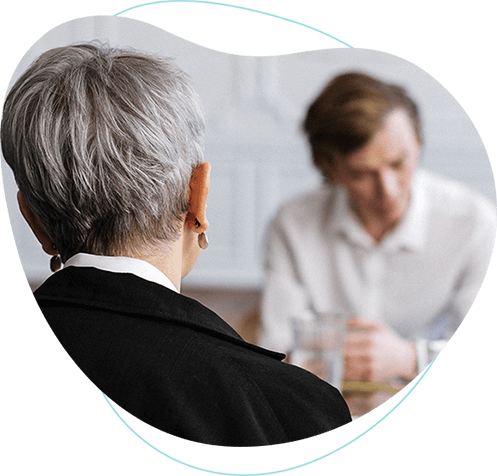
Causes of Problem Gambling
Compulsivity is a biological condition that is rooted in the brain’s circuitry and functioning. It is primarily influenced by genetics (about 70% of a problem behaviour’s presence is our current understanding of how much genetics play a part). The remaining risk factors are influenced by environment, exposure to substances and behaviours, traumas, adverse life events, stressors, and other life factors that precipitate the manifestation of this condition. Mental health conditions such as depression may also influence problems with gambling.
While many people think that compulsive gambling would not have impacted them if they had not placed that first bet or gone to that first casino, this is not necessarily the case. Often there are early signs of the presence of obsession and/or compulsion in people’s brains, sometimes starting as early as infancy or their toddler years. Many parents will say they could just tell that something was “different” about how their child reacted and behaved when they were young, and individuals with problem behaviours will often describe a lifetime of feeling “different” than their peers. The intersection of the genetic vulnerability with a behaviour such as gambling is an unfortunate marrying of two things, but there are often thought, feeling, and relational symptoms of problems in people’s lives before gambling begins. Even if this does not seem to be the case for you, it is important to address your overall health needs now to improve quality of life.

Is There a Cure?
From the working model that Sana Psychological uses and has found most successful and effective for people, no. There is no cure where the obsession or compulsion in the brain can be completely removed because it exists in some of the most core and fundamental circuitry of our brain (the reward circuitry). While this can be altered with recovery action, it does not change the circuitry such that all vulnerability disappears. If this bums you out, that is understandable. Nobody likes to acknowledge that they are living with a chronic condition.
On the hopeful side, a high quality of life while living in recovery is very possible. It is also possible to find long-term abstinence from a behaviour such as gambling. When a behaviour has been quieted, what people are left continuing to monitor is the thinking, feeling, relational, and other behavioural activity that the brain may generate. While this might feel overwhelming at first, over time it becomes very manageable and even empowering as people know what they are looking for within themselves and have tools to address symptoms that pop up over time.
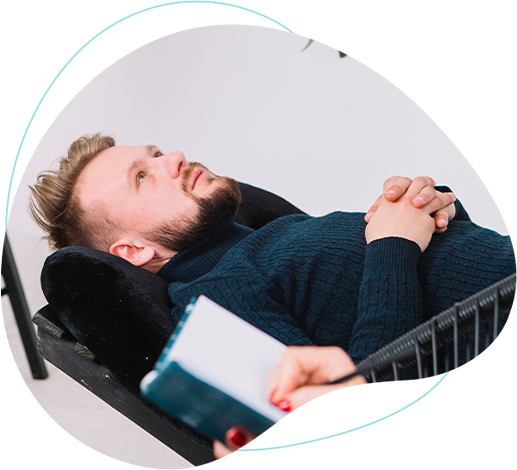


Our Problem Gambling Treatment Approach
The initial 1-2 sessions will involve gathering as much background information as possible about you, including: Strengths, available coping network and tools, challenges, as well as information about your or your loved one’s relationship with gambling.
Information is gathered to know about all parts of you. Gambling counselling is about much more than your or your loved one’s engagement with the behaviour, as gambling typically starts to increase for a variety of reasons and there will be many areas of life that you can start to address to support a reduction in gambling, such as relationships, feelings processing, physical health, sleep hygiene, financial planning, and more.
Our therapists have been trained in a variety of therapeutic techniques, including: Cognitive Behavioral Therapy (CBT), Acceptance and Commitment Therapy (ACT), Solution-focused Therapy, Motivational Interviewing, and Twelve Step Facilitation and this gets incorporated into sessions in a unique way to fit your needs and situation.
Follow-up appointments generally involve a check-in to see presenting issues and immediate things that have come up that you may want to process, follow-up on any suggestions provided in past appointments to get an idea of progress as well as roadblocks that are coming up, followed by more in-depth exploration of challenges, patterns, and coping. Sessions are active and engaged as we like to ask lots of questions and provide reflections, challenges, and psychoeducation along the way. At any point if the therapeutic approach or goals need to be changed, please speak up and this will be processed. Sessions come from a non-judgmental, compassionate, empathetic place.
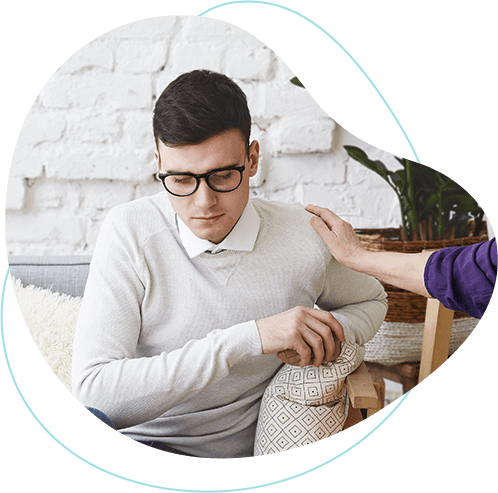
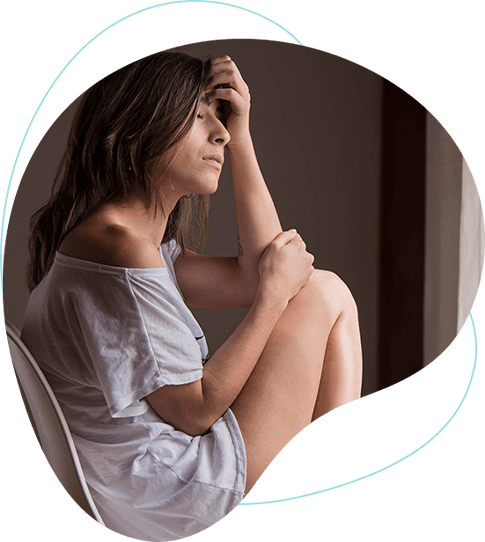
Treatment for Those Suffering from Problem Gambling
For most, the journey of recovery with gambling involves an initial detoxification or pursuit of abstinence period. This is incredibly important to allow the brain to start to recalibrate and for the pleasure threshold to return to baseline (or as close to it as it can) which allows feelings of pleasure for everyday life and activities to return. Gambling provides one of the most potent sources of feel-good neurotransmitters to the brain that we can get (dopamine) due to its intermittent reinforcement pattern. Therefore, cutting off the source of this feel-good neurotransmitter spike is essential for healthy brain functioning.
During and after this period of detoxification, recovery action will be occurring. This can mean an exploration of underlying patterns and vulnerabilities, getting to understand triggers, identify other areas where compulsive or addictive behaviour may be active, as well as starting to explore and spend time developing relationship with self. Relationships will continue during this time but may look different as you start to detach from environments and people who bring with them a higher risk of exposure to gambling and triggers. The first 3-6 months of recovery will be a period of tremendous growth and feeling; it is often uncomfortable and is a vulnerable time where the likelihood of relapse is high. Withdrawal and change are uncomfortable, but they come with great benefit. After six months, changes are more established and have become routine so things feel less effortful. The lifelong work involves continued awareness of triggers, vulnerabilities, boundaries, and ongoing development of relationship with self.
During the initial sessions at Sana Psychological, we will build a self-care or recovery plan consisting of realistic action steps that you can take to support your overall health and well-being. Typically, these action steps will touch on multiple areas of health, which might include physical, emotional, mental, relational, spiritual, financial, cultural, or more. There will not be as much focus on the behaviour of gambling itself as you probably anticipate, as gambling is treated as a symptom of the larger impulsive and compulsive brain. Problem behaviours generate a lot of activity in people’s lives and, therefore, there are a lot of areas we need to explore and develop to promote health.


The first few sessions will be quite practical as we look at life logistics, triggers, coping mechanisms, and develop a plan out of this. Follow-up sessions tend to become more about relationships, feelings, self-esteem, and deeper emotional work. If this idea scares you at the moment, that is okay. These are things that the brain has been avoiding for some time. We will take things at your pace, meet you where you are at, and do the work that is meaningful for you. It might be uncomfortable at times, but not distressing.
As part of treatment recommendations, there may be some discussion about support groups, such as Gamblers Anonymous or SMART Recovery. These are not “have tos” for participation in counselling but might have some value for you in your journey to stop gambling and improve health.
Wherever you are at in this journey, it is an honour and a privilege for Sana Psychological to be a part of it.

Support for Loved Ones
Gambling counselling may also involve concerned family members or friends who have been impacted by the negative consequences of a loved one’s gambling addiction. They may come in individually for their own support and/or join some sessions or parts of sessions with the individual who has challenges with gambling.
If you are a family member reading this and hoping your loved one will change but you are not sure if they are ready, I would encourage you to come in for yourself to look at your own health and recovery plan. Change in any member of a relational unit creates change for the whole unit, so perhaps change can start with you. Even if you are feeling that your personal changes are not having an impact on your loved one, it will provide you the strength, resources, and ability to cope with an extremely difficult, draining, and challenging situation.
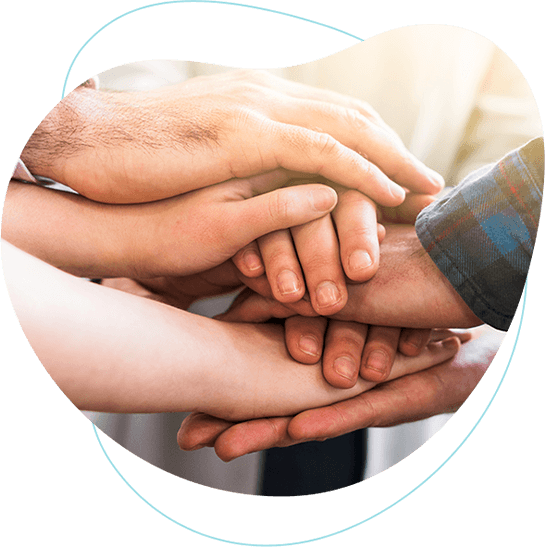


Why Choose Sana Psychological?
The approach to Addiction treatment that is taken at Sana Psychological is somewhat unique as it comes from an incorporation of psychological and medical knowledge. It also comes out of years of working with individuals and noticing patterns. The benefit to clients is that there has been lots of years of gathering information about what works and what is less helpful.
Common feedback from clients is that they appreciate the educational component to sessions and the perspective on problem behaviours that most have never heard before. This allows people to understand their symptoms and experience in a different way and often helps connect dots that previously felt very fragmented.
There are no guarantees with counselling and there cannot be the promise made that you will find this perspective helpful or clarifying, but if you are here than you are obviously curious and hopefully some of what is being said here makes some sense and gets you interested in learning more.
Sana Psychological is open, empathetic, understanding, passionate and caring, while also creating a space for accountability and challenging of stuck patterns.
Appointments and free 15 minute consultations can be scheduled online at anytime.
Frequently Asked Questions
A: Counselling is here to help support and guide people in the direction that they feel is necessary and a best fit for them. We are not here to tell people to stop doing anything; however, we will explore benefits and harms coming from behaviours and work to draw some logical conclusions about what seems best in your situation. For those with Addiction involving gambling, abstinence may be the healthiest path of action.
A: Gambling itself may have a null or minimal impact on relationships. Sometimes it might even feel like it’s facilitating a closer relationship with someone as it may provide a common activity to do. As gambling progresses and if it is a part of Addiction, it can become quite destructive to external relationships with others, as well as one’s relationship with self. Gambling Addiction can result in isolation, financial turmoil, lies, secrecy, manipulation, shame and more; all of which can slowly erode the foundations of trust, intimacy and security in connection. This is the reason that recovery action is so important for problem gamblers as it will benefit not only the individual, but the relationships they are engaged in as well.
A: You don’t. Fighting against a tornado or a tidal wave is only going to get you swept up and carried off into it. Usually by the time people present for counselling, they’ve been fighting this for years with no benefit. In order to move forward, one needs to learn to acknowledge, accept, and take healthy action rather than fight. Fighting leads to being stuck. The ‘Triple A’ approach of Acknowledgement, Acceptance, and Action leads to freedom and growth. It requires ongoing awareness and diligence about healthy behaviours.
A: The behaviour of gambling in and of itself is just that; a behaviour. It is neither good nor bad, it just exists. Where it can go, how it can impact, and the influence it has on people is where it starts to become problematic. Gambling Addiction, though not everyone agrees with this, is a chronic condition with many symptoms connected to it. A disease, by definition, is a disorder of structure and function. Gambling impacts the structure and function of the brain and is driven by a brain that has impaired structure and function. This suggests that Gambling Addiction does fit the definition of disease.

